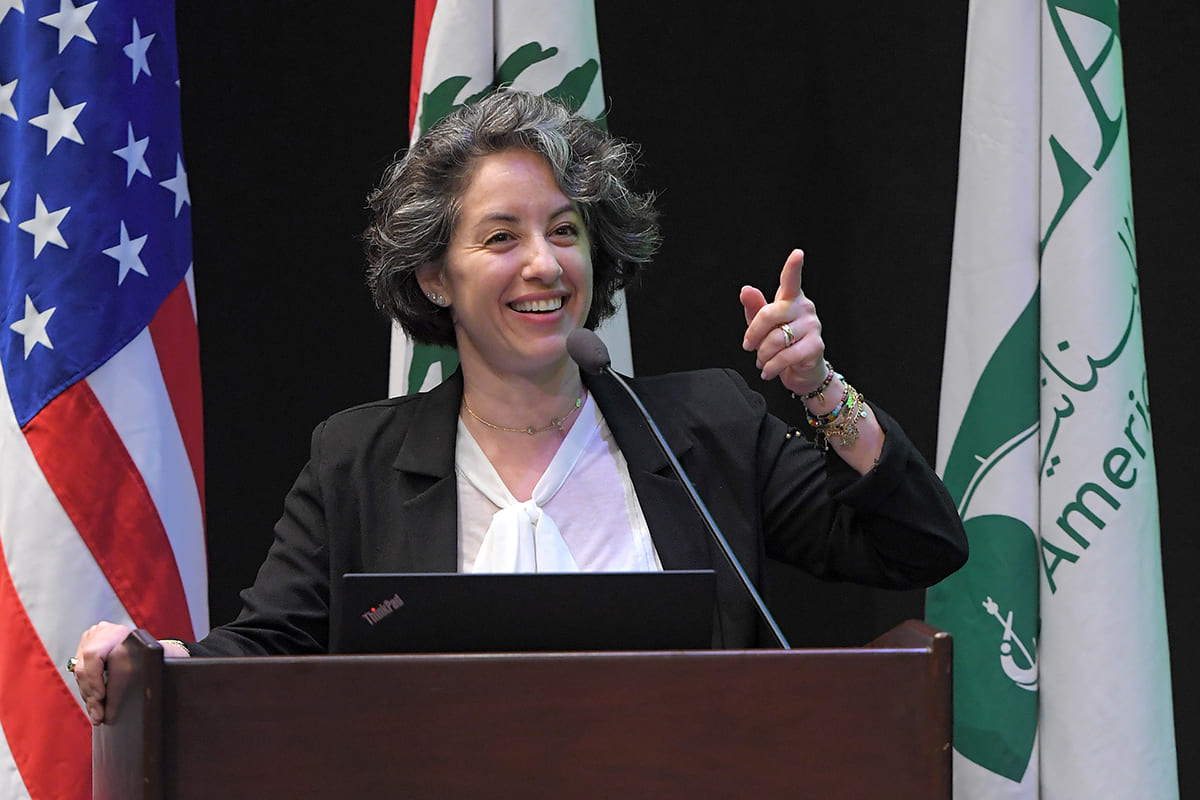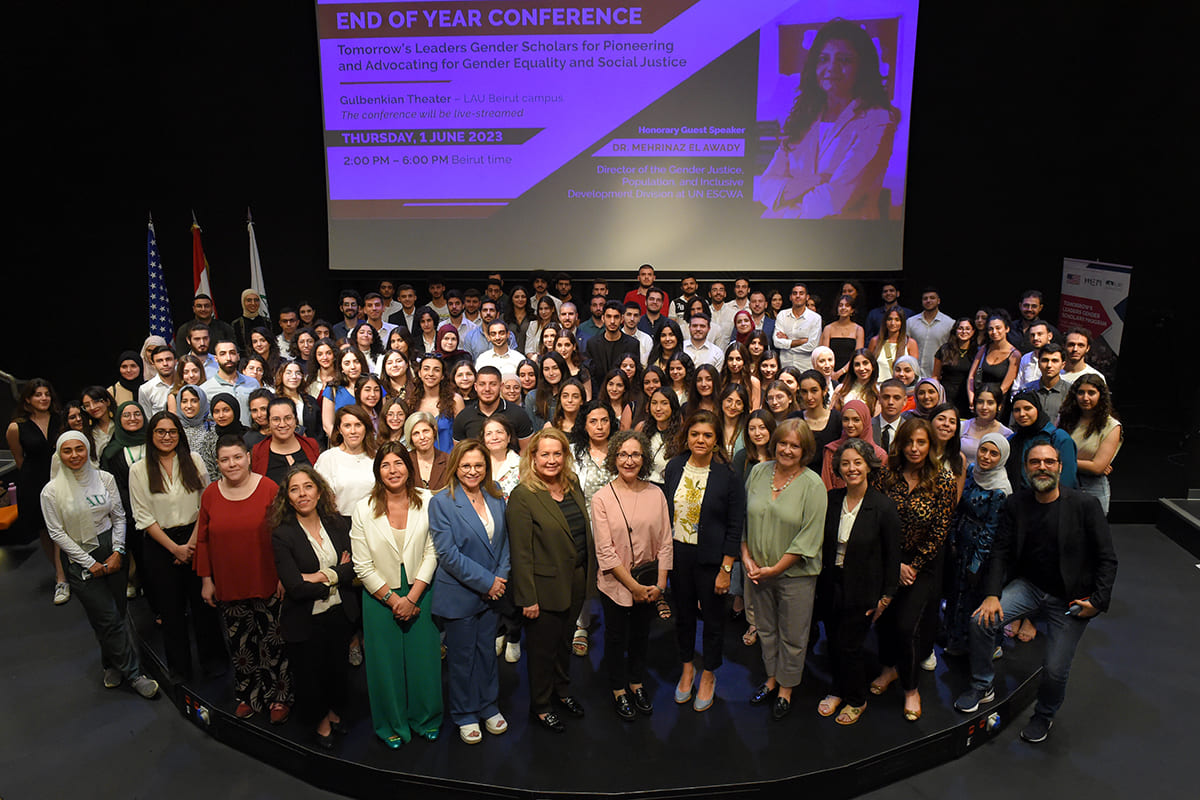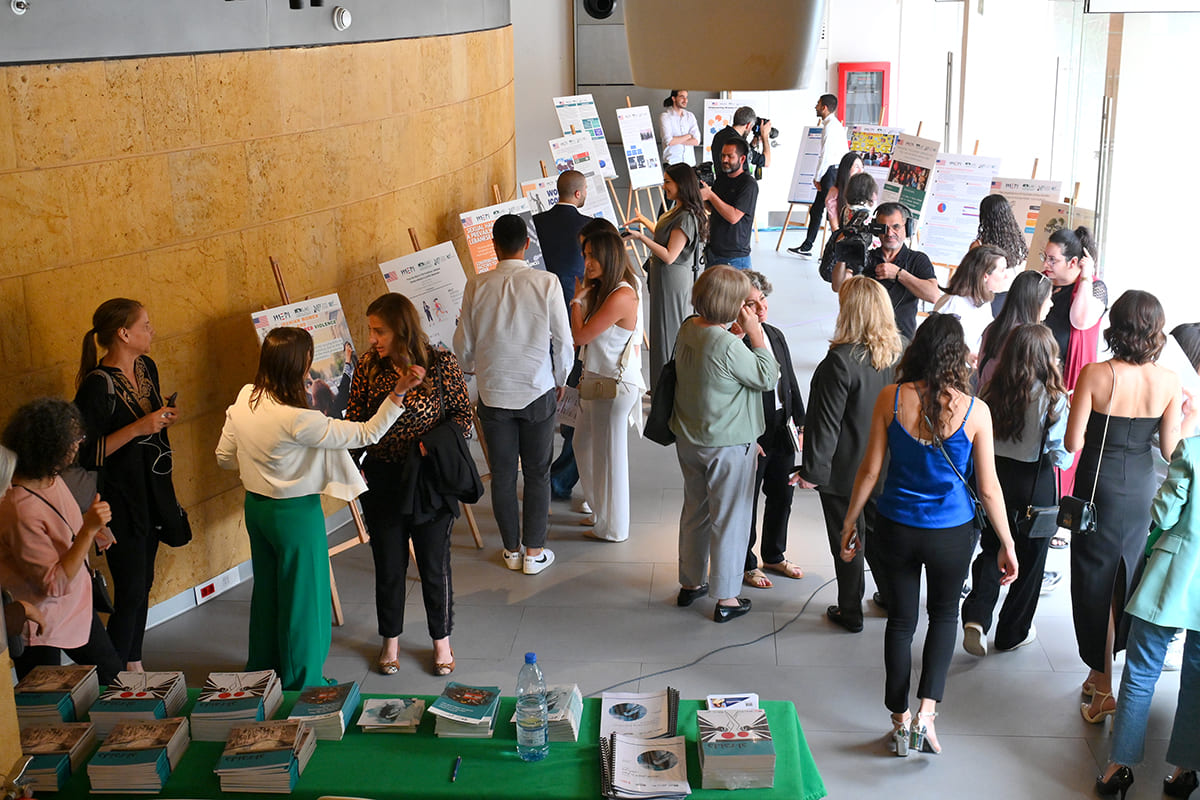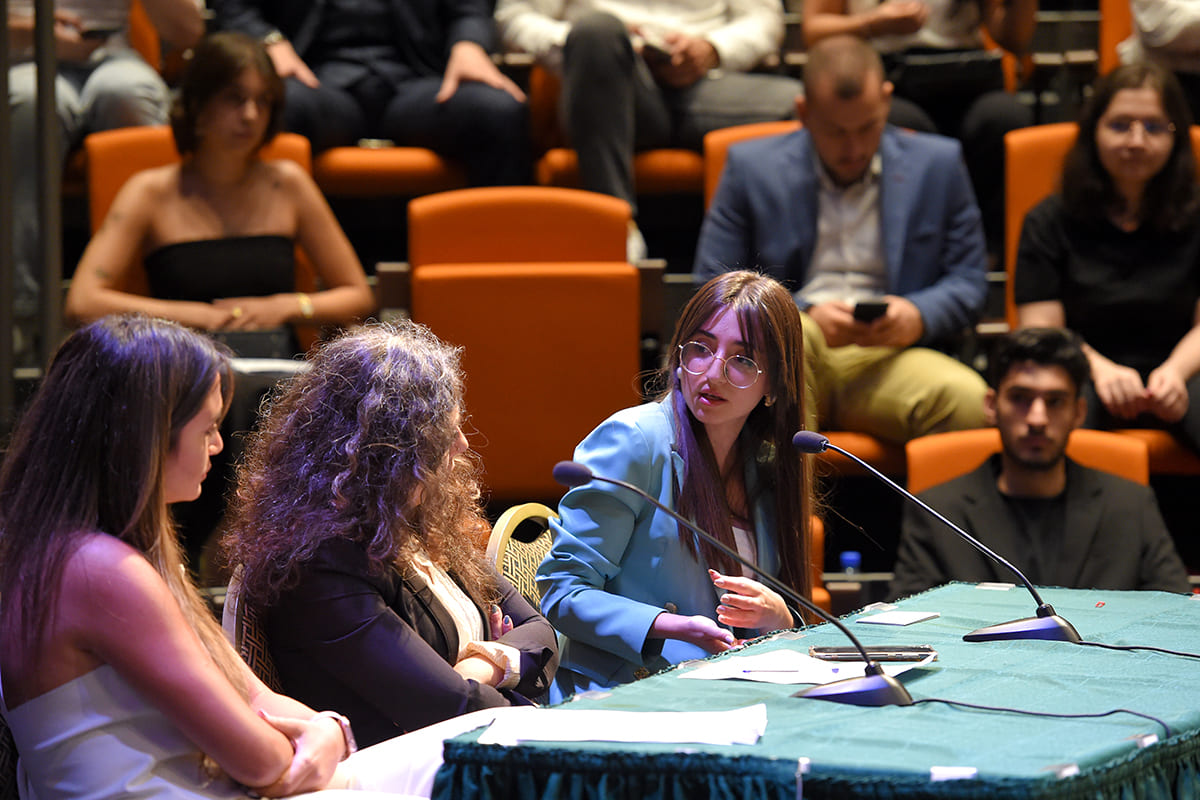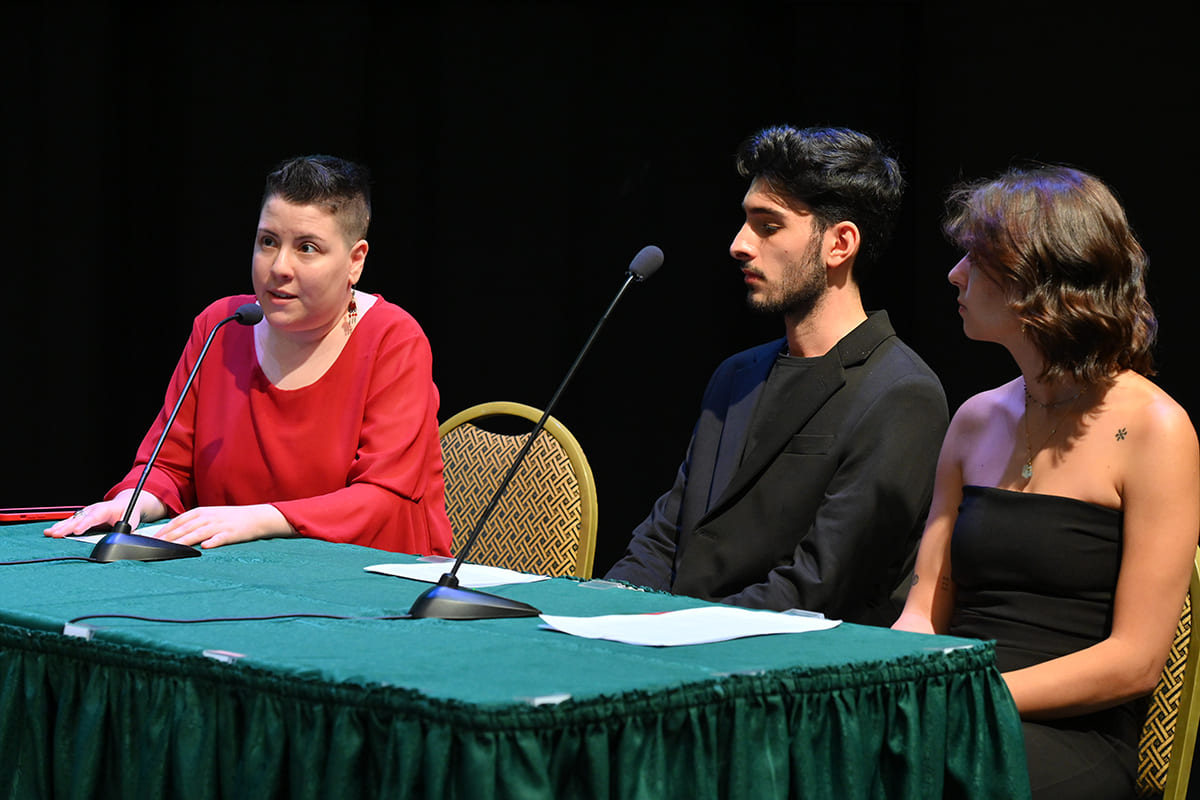Pioneering and Advocating for Gender Equality and Social Justice
Tomorrow’s Leaders Gender Scholars present strategies and policies for realizing gender equality and sustainable development at their third annual, end-of-year conference.
In collaboration with the Arab Institute for Women (AiW), the U.S.- Middle East Partnership Initiative’s Tomorrow’s Leaders Gender Scholars Program (MEPI-TLS) funded by the U.S. Department of State at LAU hosted its third annual end-of-year conference, titled MEPI-TLS for Pioneering and Advocating for Gender Equality and Social Justice on June 1 at the Gulbenkian Theater, on the Beirut campus.
The conference featured a keynote address by Dr. Mehrinaz El Awady, director of the Gender Justice, Population and Inclusive Development Division at the UN Economic and Social Commission for West Asia as well as panel discussions led by gender experts, while TLS scholars gave poster and oral presentations reflecting on their experiential and evidence-based learning. Speakers recommended strategies and policies for realizing gender equality and sustainable development.
In his welcome address, LAU President Michel E. Mawad highlighted the exceptional work of the 116 MEPI-TLS scholars in completing the program despite the challenges. Reminding attendees about the rootedness of gender equality at LAU he noted how it was one of the pillars behind the K-12 school for girls that was established by Sarah Huntington Smith back in 1835.
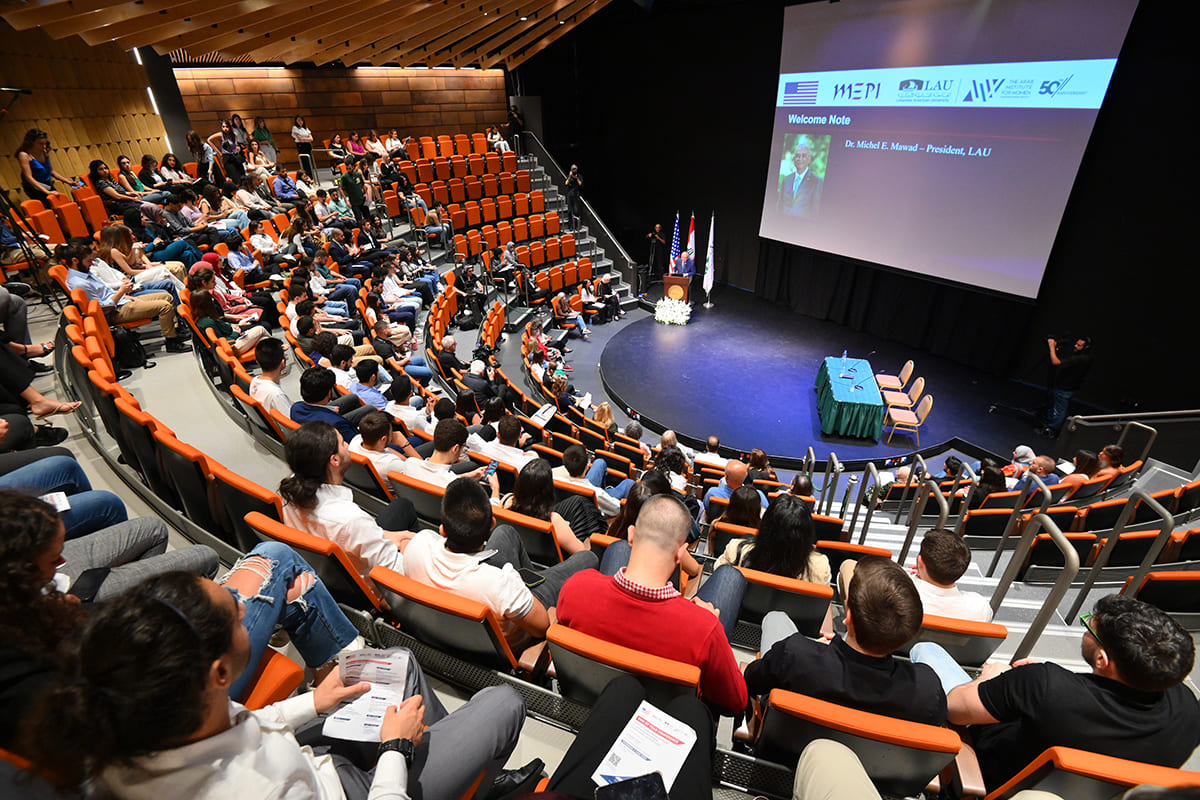
“Since then, and in our various iterations we continued to embrace and mirror America’s finest values,” said Dr. Mawad, thanking the American people, the US Government, and the US Embassy in Beirut for their continued generosity.
Congratulating AiW on its 50th anniversary, the president underscored the institute’s role as “a major vehicle for us to implement the TLS and similar programs.”
To that end, he added, “the MEPI program is now a flagship activity for LAU and a major window for us to fulfill our regional role, especially in terms of promoting the cause of gender equality and women’s rights.”
Political and Economic Chief at the US Embassy Amy Smith offered her heartfelt congratulations to all the TLS scholars. “You are at the heart of a growing and vibrant gender studies culture at LAU,” she said, crediting the university’s faculty, experts and activists and thanking them for “being champions of gender equality and social justice.”
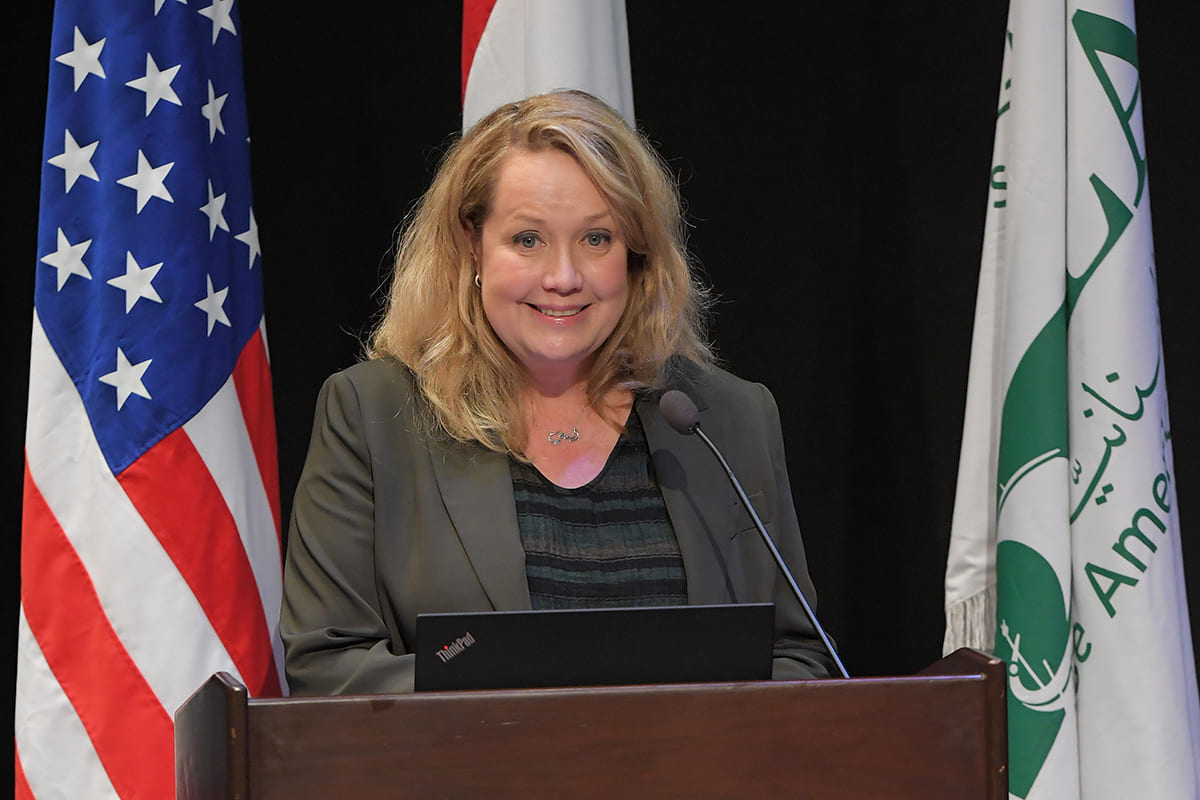
Smith noted that the US government is currently investing more than $80 million in the MEPI-TL programs, which include the undergraduate and graduate scholarship programs, as well as the gender scholars and college-to-work pipeline programs.
In her keynote address, Dr. El Awady offered a valuable historical perspective on how the region had lacked research centers for women’s rights, up until the AiW was established to help fill the gap.
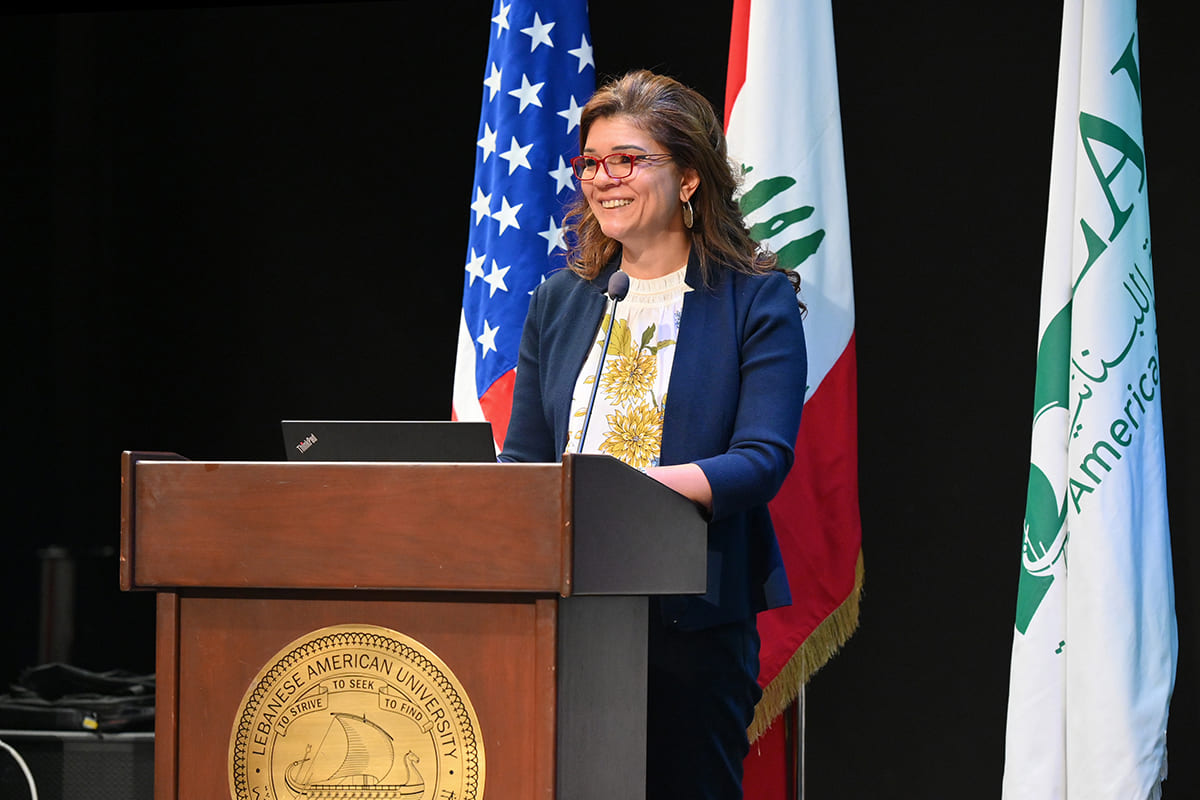
Despite the progress, Dr. El Awady reminded attendees that “the Arab region has closed only 63 percent of its gender gap to date,” and predicted that “it will take us 149 years to close the remaining 37 percent to reach gender equality, compared to 132 years globally.”
To that extent, she continued, “your work on women’s economic empowerment, women’s participation and the media has never been more needed at this time of interlocking crises and deepened inequalities.”
Dr. El Awady firmly encouraged the new generation to advance the fight. “Your voices, work and aspirations are just as vital today as of those who came before you – who channeled the voices of women in our region to international arenas and who fought for the rights of all women.”
Addressing the scholars, TLS Academic Director and Assistant Professor Lina Kreidieh praised them for their efforts despite the prevailing circumstances in the country. “You stood up for a load of work, discussed, presented, debated, and paved a path of a better future for you and for the generations to come,” she said.
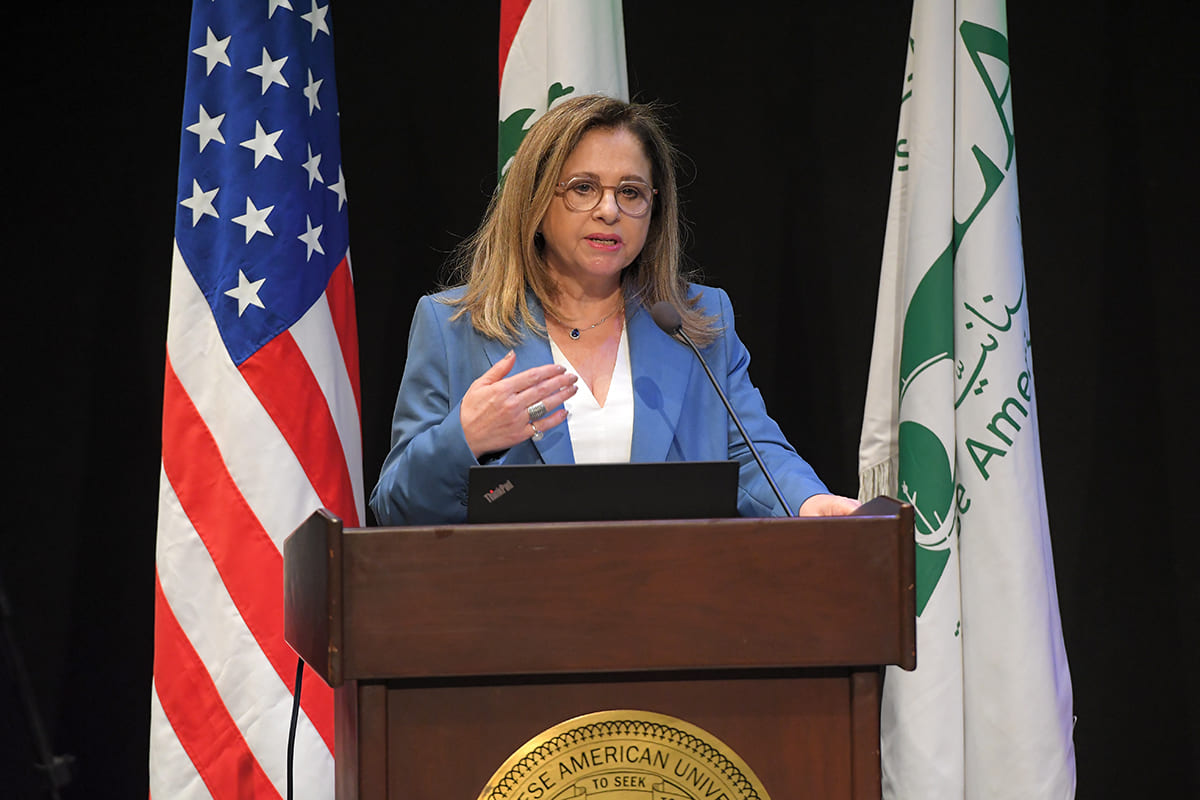
Highlighting how the institute mainstreams gender across LAU’s academic offering, AiW Director Myriam Sfeir pointed to the TLS program as a shining example. “We ensure that our students are up to date on all the developments related to gender justice taking place throughout the Arab region,” she said, adding that AiW showcased the work of student researchers by publishing their work in a special edition of Al Raida journal.
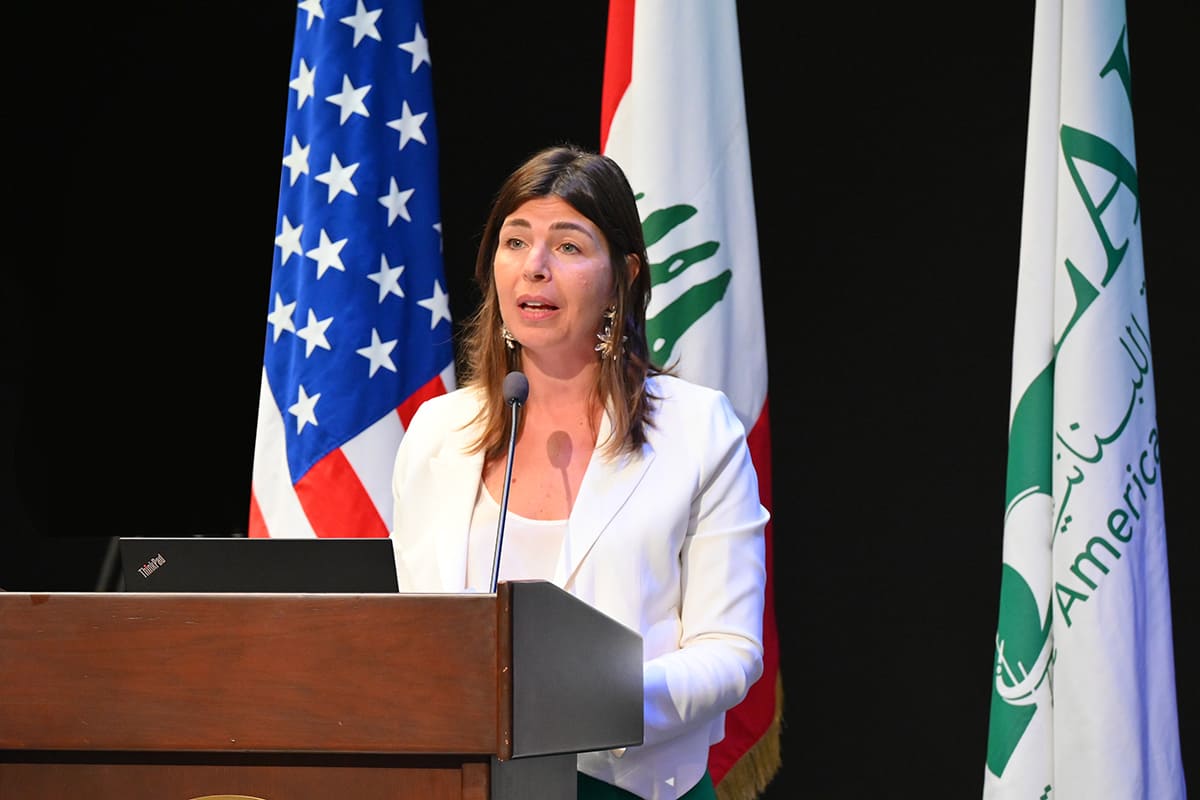
The conference included four student panels: “Gender, the Environment, and Sustainable Development,” moderated by LAU Title IX Director and LAU-MEPI TL Gender Expert Jennifer Skulte-Ouaiss; “Marginalized Groups: Representation and Misogyny,” moderated by Sfeir; “Masculinities in Focus,” moderated by LAU-MEPI TLS Instructor Rita Barotta; and “Gender Inequalities: Killing Us Softly,” moderated by LAU-MEPI TLS Instructor Joanna Abillama.
Delivering the closing remarks, MEPI-TL Executive Director Dina Abdul Rahman thanked the faculty and staff who worked hard for the success of the students, the program, and the conference.
